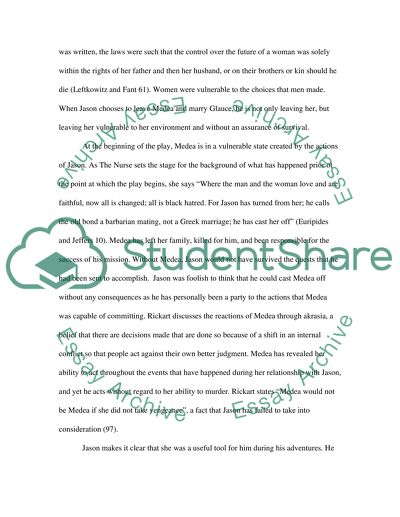Cite this document
(“Medea: Character Analysis of a Woman of Ruthless Intent Thesis”, n.d.)
Retrieved from https://studentshare.org/other/1427257-medea-character-analysis-of-a-woman-of-ruthless-intent
Retrieved from https://studentshare.org/other/1427257-medea-character-analysis-of-a-woman-of-ruthless-intent
(Medea: Character Analysis of a Woman of Ruthless Intent Thesis)
https://studentshare.org/other/1427257-medea-character-analysis-of-a-woman-of-ruthless-intent.
https://studentshare.org/other/1427257-medea-character-analysis-of-a-woman-of-ruthless-intent.
“Medea: Character Analysis of a Woman of Ruthless Intent Thesis”, n.d. https://studentshare.org/other/1427257-medea-character-analysis-of-a-woman-of-ruthless-intent.


